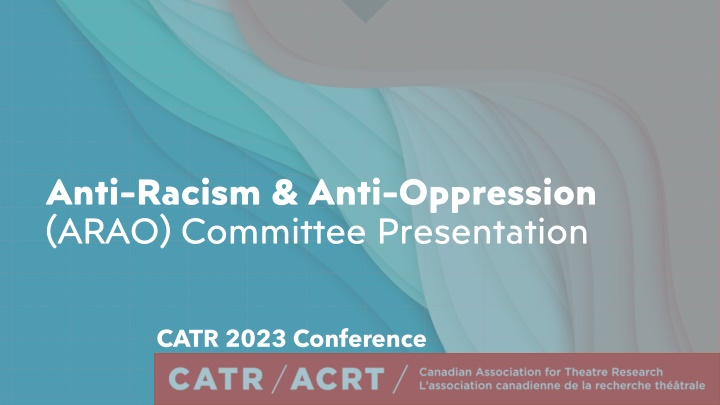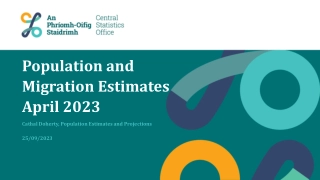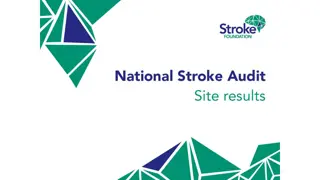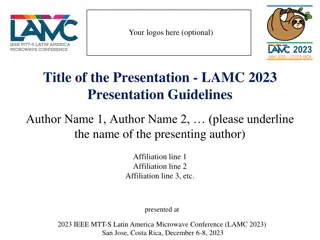
CATR 2023 Conference: Anti-Racism & Anti-Oppression Committee Presentation Highlights
Explore the journey of the Anti-Racism & Anti-Oppression (ARAO) Committee at the CATR 2023 Conference, highlighting their initiatives since 2020. Learn about their guiding principles, actions, and commitments towards creating a more inclusive and equitable organization. Get insights into how transparency, accountability, and intersectionality are shaping their approach to address racist and oppressive structures within the organization. Engage with their ongoing work and contribute valuable feedback to support their mission of change and progress.
Download Presentation

Please find below an Image/Link to download the presentation.
The content on the website is provided AS IS for your information and personal use only. It may not be sold, licensed, or shared on other websites without obtaining consent from the author. If you encounter any issues during the download, it is possible that the publisher has removed the file from their server.
You are allowed to download the files provided on this website for personal or commercial use, subject to the condition that they are used lawfully. All files are the property of their respective owners.
The content on the website is provided AS IS for your information and personal use only. It may not be sold, licensed, or shared on other websites without obtaining consent from the author.
E N D
Presentation Transcript
Anti-Racism & Anti-Oppression (ARAO) Committee Presentation CATR 2023 Conference
This presentation aims to: Inform the membership of the Anti-Racism and Anti-Oppression (ARAO) Committee s ongoing EDI/ARAO work in the spirit of transparency and accessibility. Encourage feedback from the membership to help improve the committee s ongoing EDI/ARAO work in effectively addressing racist and oppressive structures, values, and practices within our organization. The following slides offer a glimpse of CATR s approach to ARAO from 2020 to the present.
Taking Initiative First step of action was taken by outgoing CATR President Erin Hurley in an emergency CATR Board meeting in July 2020. Hurley identifies CATR s problematic record of not foregrounding nor honouring BIPOC scholarship and artistic practice.
Forming a committee Yana Meerzon, CATR s in-coming President, announces the creation of CATR s first ARAO Committee (initially called the Ad Hoc Committee on Organizational Anti-Racism and Diversity) in July 2020.
First steps of the ARAO Committee The ARAO Committee has its first meeting in August 2020. A process of scrutinizing the organization through an ARAO lens begins. The ARAO Committee requests formal authorization from the Board in September 2020, and develops a set of guiding principles.
Guiding Principles: Accountability: we should be accountable to the CATR membership-at-large as well as to other committee members. Doing actionable work: we arenot just studying the problem; we are developing plans of action to address the problem. Long-term relationships and collaboration: we want to ensure that our plan of action involves and includes individual and organizational partners who are Black, Indigenous, and People of Colour, and being attentive to their timelines. Reflexivity: we need to be reflexive about how our committee is operating, and within what power structures. Our work must re-think the infrastructure of the whole theatre establishment.
Guiding Principles (continued): Intersectionality: our work must always reflect an understanding that racism is an intersectional issue with deep rooted structures and power dynamics that produce discrimination and inequality. Transparency and Involvement: we must honour a commitment to continued outreach to new members while supporting long-term membership. Accessibility: we will utilize online platforms for meetings, provide live transcription, and record meetings for members who cannot attend. We must offer members the option to communicate in a manner that is comfortable for them (chat or audio, cameras on or off, and in the language they prefer).
Examination of CATR Structures: ARAO Committee begins an internal audit and examination of the institutional structures of CATR that continue to uphold racist, oppressive and supremacist structures, values, and practices within our organization. Specifically, examination was made of: Governance Elections Scholarly Awards Funding Opportunities CATR s annual conference Membership involvement and communication CATR s collaborations with other organizations and constituencies.
Search for External consultant Building on this information, the ARAO Committee searched for an appropriate external consultant with extensive experience in anti-racist and anti-oppressive practice. In May 2021, the ARAO committee selected Bakau Consulting, an equity, inclusion and anti-racism company based in Canada, to provide an assessment of CATR. Bakau Consulting recommended seeking consultation from the membership to lead the committee in creating and implementing a strategic plan to dismantle racist and oppressive structures.
ARAO Committee Report submitted to the Board In February of 2022, the ARAO Committee submitted a report to the CATR Board outlining all of the work of the ARAO Committee since August of 2020; The report was meant to serve as an equity audit of the organization, and drew heavily from Bakau s suggestions, combined with the committee s own thoughts and analysis.
Second ARAO Committee is formed The focus of the second ARAO Committee is to act on the first committee s report by: Translating the Report's Recommendations into Motions for the Board to consider. Implementing (or advising the Board on implementing) these Motions. Assessing (or advise the Board on assessing) the effectiveness of the implemented Motions. The Committee s work in 2023 has been focused on creating Motions drawn from the original ARAO Committee s Report.
Motions and (in-progress) initiatives General Procedures: Create outward facing recruitment procedures for board and committee positions that makes transparent recruitment processes and board/committee composition. Create and post a clearly articulated and secured reporting process for conflicts/Code of Conduct violations, and other related issues (This motion will be completed in consultation with the Committee on Conduct). Update all CATR governance documents to reflect approved motions, including vocabulary to reflect anti-oppression language. Strike an ad hoc committee on data collection to consider what data are collected and the ethics of collecting and using this data.
Awards and Recognitions: Institute a recognition that honours a drama, theatre, and performance scholar and/or practitioner whose scholarship, practice, and or/community engaged work has significantly advanced anti-colonial and/or EDI/ARAO-based goals. Review the criteria for all CATR Recognitions with respect to CATR EDI/ARAO principles: o following EDI principles when selecting Scholarly Awards Committee chairs, o replacing the Lifetime Achievement Associateship with the Distinguished Scholar Associateship, o revising the terms of the Honorary Associateship, the Saddlemyer Award and Denis Salter Grants, o Reorganizing the Recognitions webpages and posted updated terms of reference for individual Recognitions, o including accessibility guidelines in the Lawrence Prize call.
Annual Conference: Ensure that all Conference-specific procedures are informed by EDI/ARAO principles and that these procedures are reflected in the CATR Handbook: o Normalizing accessibility practices such as single-webpage design, sign language interpretation, access to papers, and visual descriptions. o Offering Committee on Conduct and ARAO information sessions.
Consultation, Education, and Training: Provide a web-link to the Code of Conduct on the CATR Membership sign-up and renewal portal with language clarifying that any new or renewing member must read and accept its terms. Provide avenues for ongoing direct membership consultation, education, and training about the Code of Conduct and the Committee on Conduct: o improving process and contact information for the Committee on Conduct on the CATR website.
Consultation, Education, and Training (continued): Provide avenues for ongoing CATR-specific consultation, education, and training on anti-oppression and anti-colonial practices for Board Members, the Board s Equity Officer, and the membership: o Secured funding from Federation s EDID Initiatives Fund for an Anti-Racism, Anti-Oppression, and EDI training Workshop for CATR Board members. o Creating Theatre Research in Canada Writing & Mentorship Fellowship to break down barriers to scholarly publishing.
EDI/ARAO Guiding Statement: Develop a living EDI/ARAO guiding statement that will both guide and reflect ongoing EDI/ARAO measures as they are developed. Incorporate the Guiding Statement into the CATR Handbook to reflect EDI/ARAO principles to guide all CATR activities from EDI/ARAO standards. Ensure that the Guiding Statement informs all conference-specific procedures and that these procedures are reflected in the CATR Handbook.
Next on the ARAO Committees Agenda: Further discussion and action on the Report s recommendations on: oAccessibility, oOngoing Self-Reflection, oCompensation.
Your Feedback! Your feedback is very important to the committee s ongoing EDI/ARAO work in dismantling racist and oppressive structures and practices within our organization. Please share your questions, concerns, or suggestions by emailing any of the following ARAO committee members: Robin Whittaker: rwhit@stu.ca Andy Houston: houston@uwaterloo.ca Jimena Ortuzar: jimena@nyu.edu Carla Melo: carla.melo@utoronto.ca
CATR members who have participated in ARAO Committees (in alphabetical order): Taiwo Afolabi Art Babayants Christine (cricri) Bellerose Naomi Bennett Jenn Boulay Carla Da Silva Melo Giorelle Diokno Peter Dickinson Katrina Dunn Kara Flanagan Julia Henderson Andy Houston Tabia Lau Heunjung Lee Shelley Liebembuk Signy Lynch Jimena Ortuzar Hannah Rackow Kimberly Richards Jessica Riley Sarah Robbins Sean Robertson-Palmer Reza Sadeghi-Yekta David Smith Deneh Cho Thompson Rahul Varma Robin Whittaker















